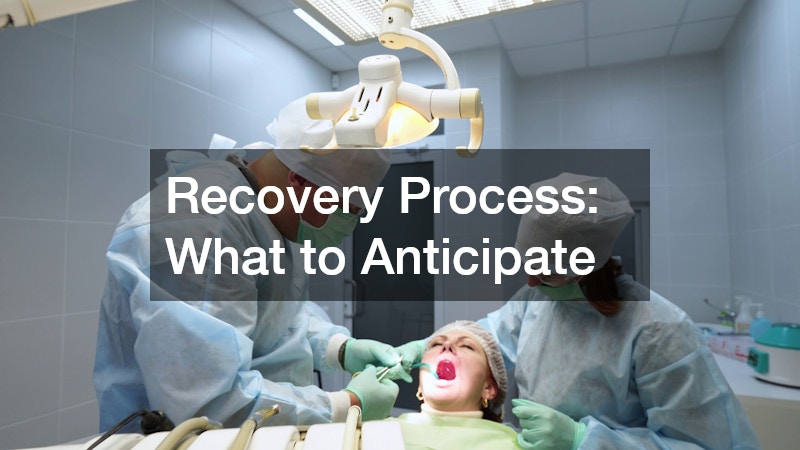Wisdom teeth removal is a common dental surgery that many adults undergo. Understanding the process, recovery, and reasons for extraction can help alleviate concerns.
What Are Wisdom Teeth and Why Are They Removed?
Understanding Wisdom Teeth
Wisdom teeth are the third set of molars located in the very back of your mouth, which usually emerge during late adolescence or early adulthood. These teeth have historically been useful for our ancestors, who needed extra grinding power for raw meats and tough plants.
Today, with modern diets and advancements in dental care, wisdom teeth often become problematic rather than beneficial. They can remain submerged beneath the gums or emerge at odd angles due to limited space in the modern human jaw.
The development of wisdom teeth typically begins in the pre-teen years, and they are often visible in X-rays before they start to break through the gumline. This developmental discrepancy is why many people experience issues when these molars try to make their presence known.
Reasons for Extraction
One of the most common reasons for extraction is impaction, where wisdom teeth do not have enough space to emerge or develop normally. Impacted wisdom teeth can lead to infection, pain, and damage to other teeth.
Crowding is another concern, as wisdom teeth may push other teeth out of their proper alignment, leading to issues such as misalignment or the need for orthodontic solutions. This crowding can complicate oral hygiene efforts, increasing the risk of cavities and gum disease.
In many cases, dentists recommend preventive removal to avoid future complications, even if wisdom teeth are not currently causing any problems. The potential for impaction, crowding, and associated issues often outweighs the benefits of retaining these molars.
How to Prepare for Wisdom Teeth Removal
Pre-Surgery Consultation
During your pre-surgery consultation, you will have the opportunity to discuss the procedure with your oral surgeon and ask any questions you might have. It’s crucial to understand the steps involved, the type of anesthesia that will be used, and the expected recovery time.
Your dentist might take X-rays to evaluate the position of your wisdom teeth and determine the complexity of their removal. It’s also wise to discuss any medications you’re currently taking and any health conditions that may affect the surgery.
Your oral surgeon will provide detailed instructions on how to prepare for the surgery to ensure the highest safety standards and the most comfortable experience possible. Reviewing these guidelines with your dentist can help mitigate any anxiety you have about the surgery.
Pre-Surgery Instructions
Important pre-surgery instructions typically include dietary guidelines, such as fasting after midnight before the surgery if you are to undergo general anesthesia. Your surgeon will also advise on managing your medication intake; certain medications may need to be paused.
You should arrange for transportation to and from the dental office, as the effects of anesthesia can make it unsafe to drive yourself home. This preparation step is important to ensure a smooth and stress-free process from start to finish.
Moreover, planning your post-surgery diet and purchasing soft foods in advance, such as yogurt, applesauce, or soup, can contribute to a more comfortable recovery. Being prepared can significantly influence your post-operative experience and reduce recovery stress.
What to Expect During the Surgery
Surgical Procedure Overview
Wisdom teeth removal is typically a straightforward procedure performed under the care of a dental professional. The surgeon will make an incision in the gum tissue to access the tooth and may divide it into sections for easier removal.
Modern techniques and equipment have enhanced the efficiency and safety of the procedure, resulting in shorter surgery times and improved recovery outcomes. It’s a controlled environment where every step is taken to minimize patient discomfort.
The entire procedure usually takes less than an hour, depending on how many teeth are being extracted and whether any complications, such as impaction, are present. Post-operative care instructions immediately follow, providing you with a roadmap to recovery.
Anesthesia Options
Anesthesia for wisdom teeth removal varies depending on the complexity of the extraction and patient preference. Local anesthesia numbs the area around the tooth, while general anesthesia puts you to sleep during the procedure.
Another option is sedation anesthesia, administered intravenously, which relaxes you and suppresses your memory of the procedure while maintaining consciousness. Your oral surgeon will help you decide which option best suits your needs and comfort level.
Discussing the anesthesia options early allows you to make an informed decision and prepare accordingly for the surgery day. The choice of anesthesia has implications for your recovery experience and requires careful consideration.
Recovery Process: What to Anticipate
Post-Surgery Care
Effective post-surgery care is essential to promote healing and reduce discomfort following wisdom teeth removal. This care typically includes keeping pressure on the gauze pack inserted over the surgical area and avoiding rinsing or spitting forcefully for at least 24 hours.
Swelling is common but can be managed with cold compresses during the first 48 hours, followed by warm compresses if needed. Rest is crucial—physical activities should be minimized for a few days to allow optimal recovery.
Your surgeon will provide specific instructions for oral hygiene, usually recommending rinsing with salt water starting the day after surgery. Adhering to these guidelines can significantly enhance your recovery and comfort levels.
Pain Management and Diet
Pain management often involves using prescribed pain medications or over-the-counter solutions based on your dentist’s recommendations. Ibuprofen or acetaminophen can effectively manage discomfort, while prescription medications might be prescribed in more serious cases.
During recovery, a soft food diet is typically recommended to minimize irritation of the surgical areas. Foods such as mashed potatoes and smoothies can offer nutritional value without causing additional pain or damage.
Hydration is equally important, although care should be taken to avoid using straws, as suction can dislodge blood clots and impede healing. Observing these dietary recommendations aids both immediate recovery and long-term oral health.

